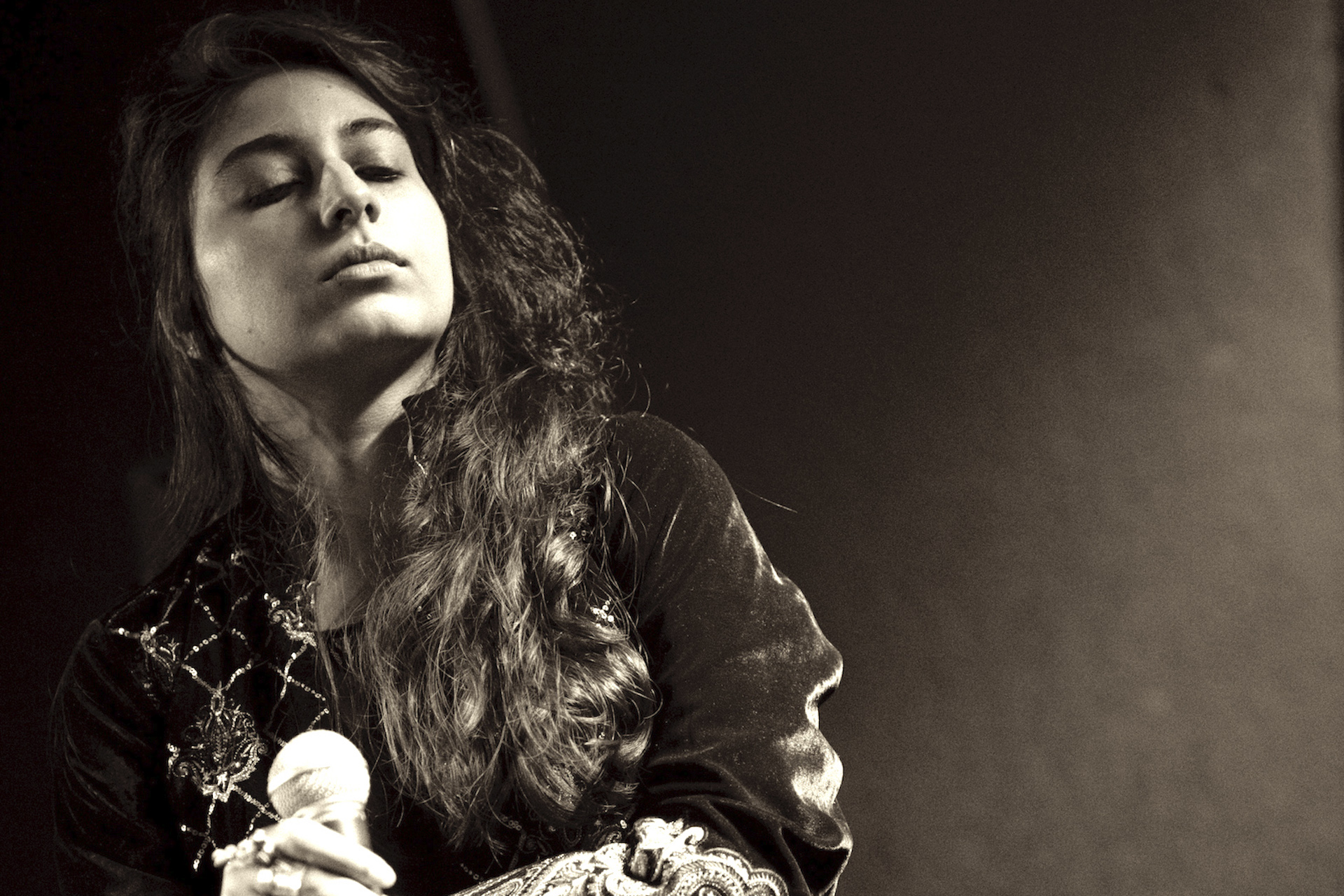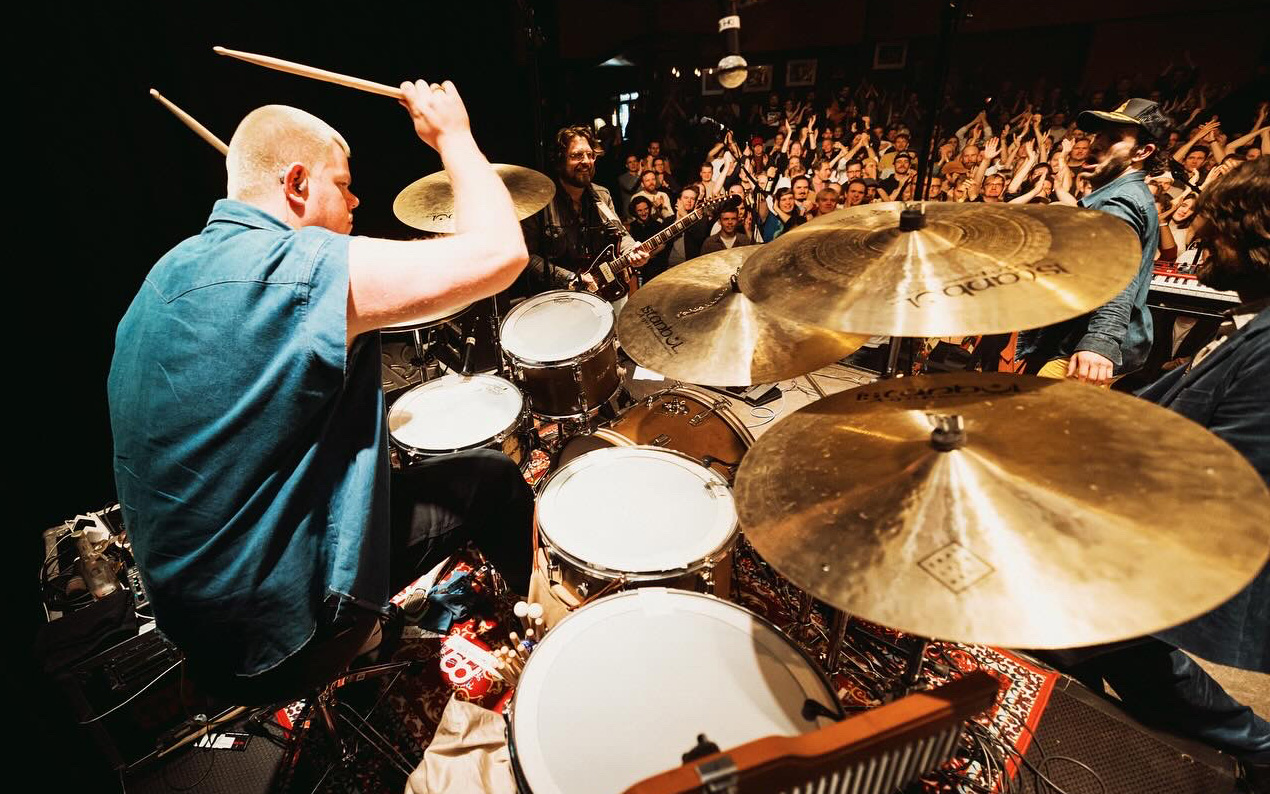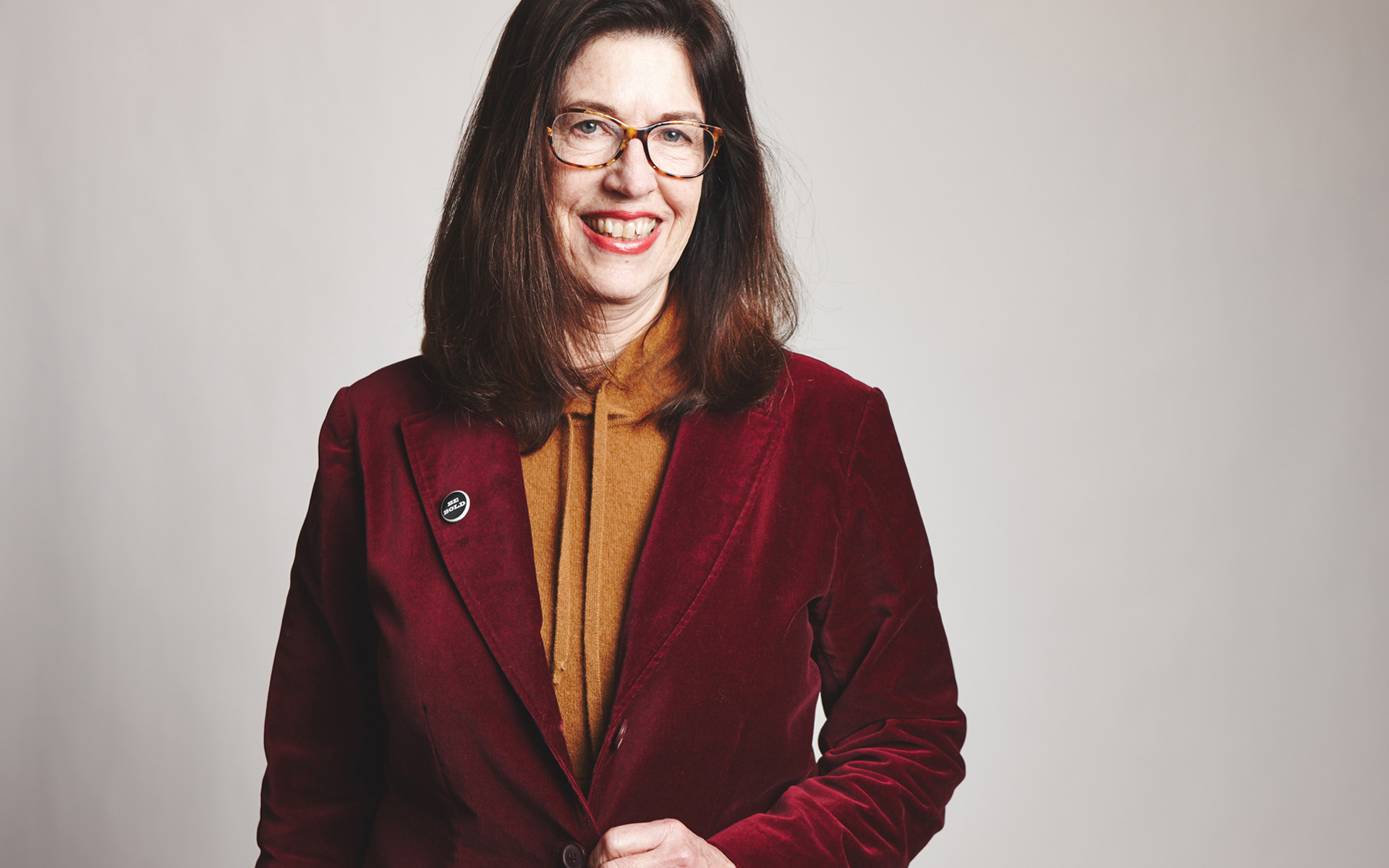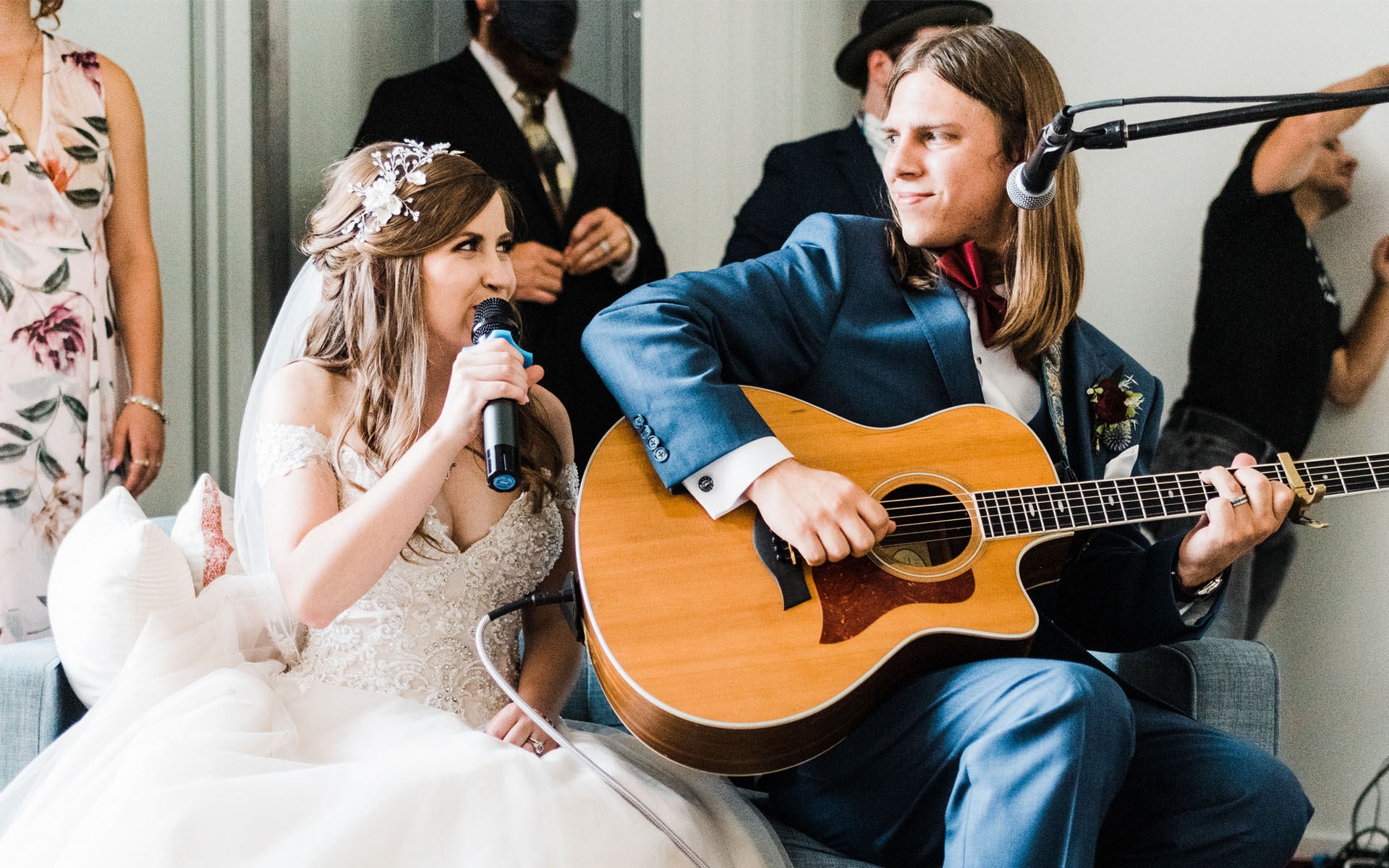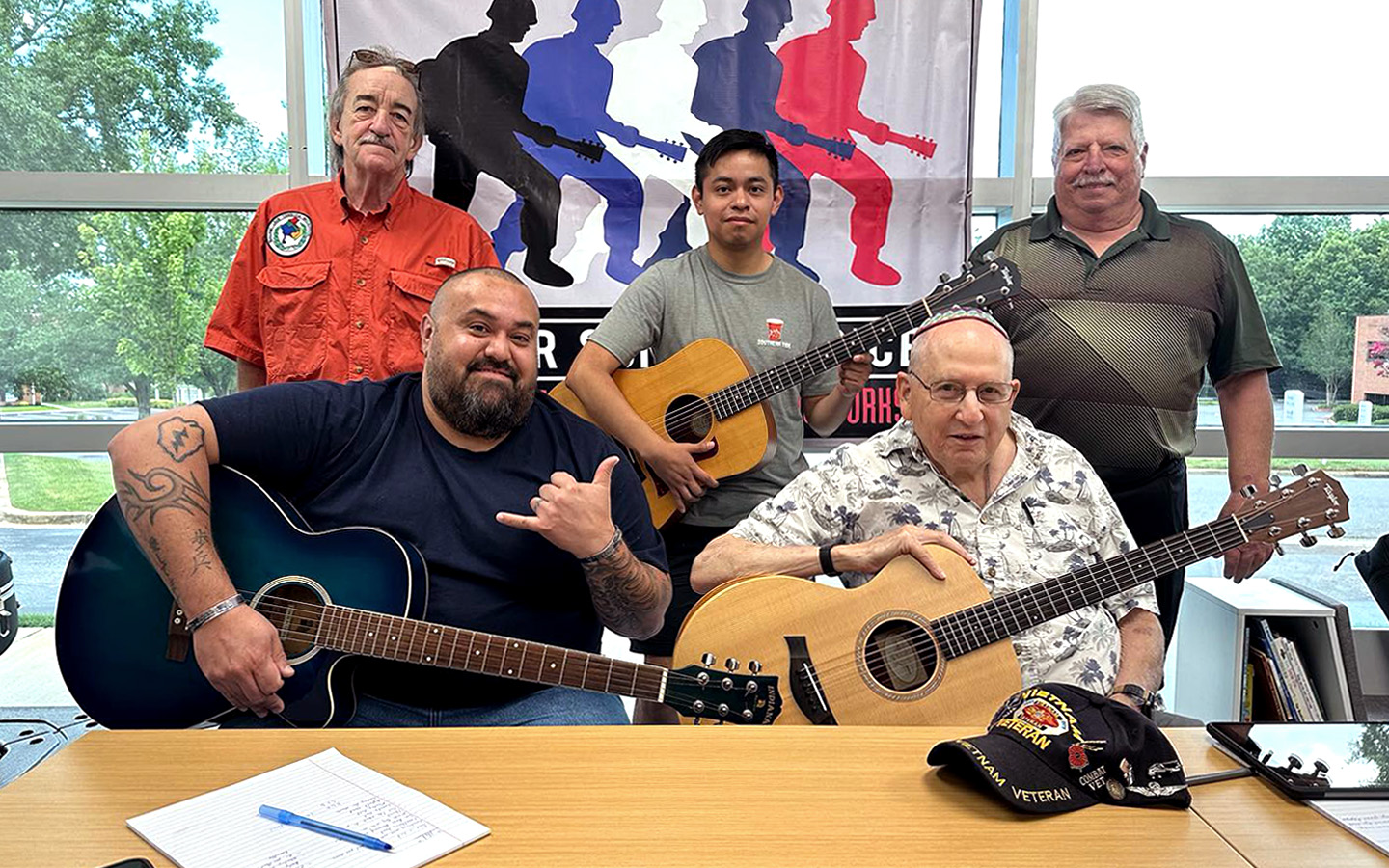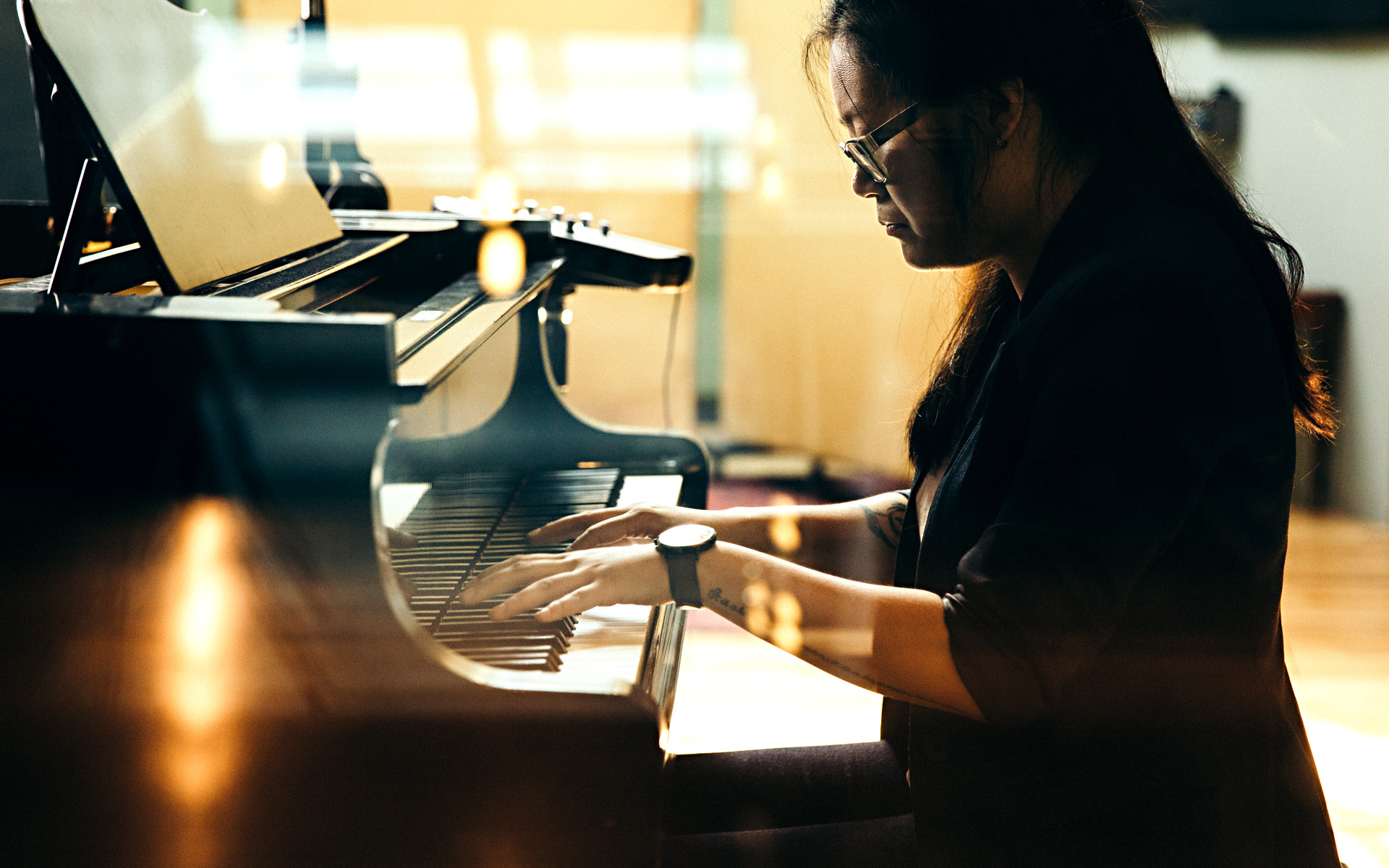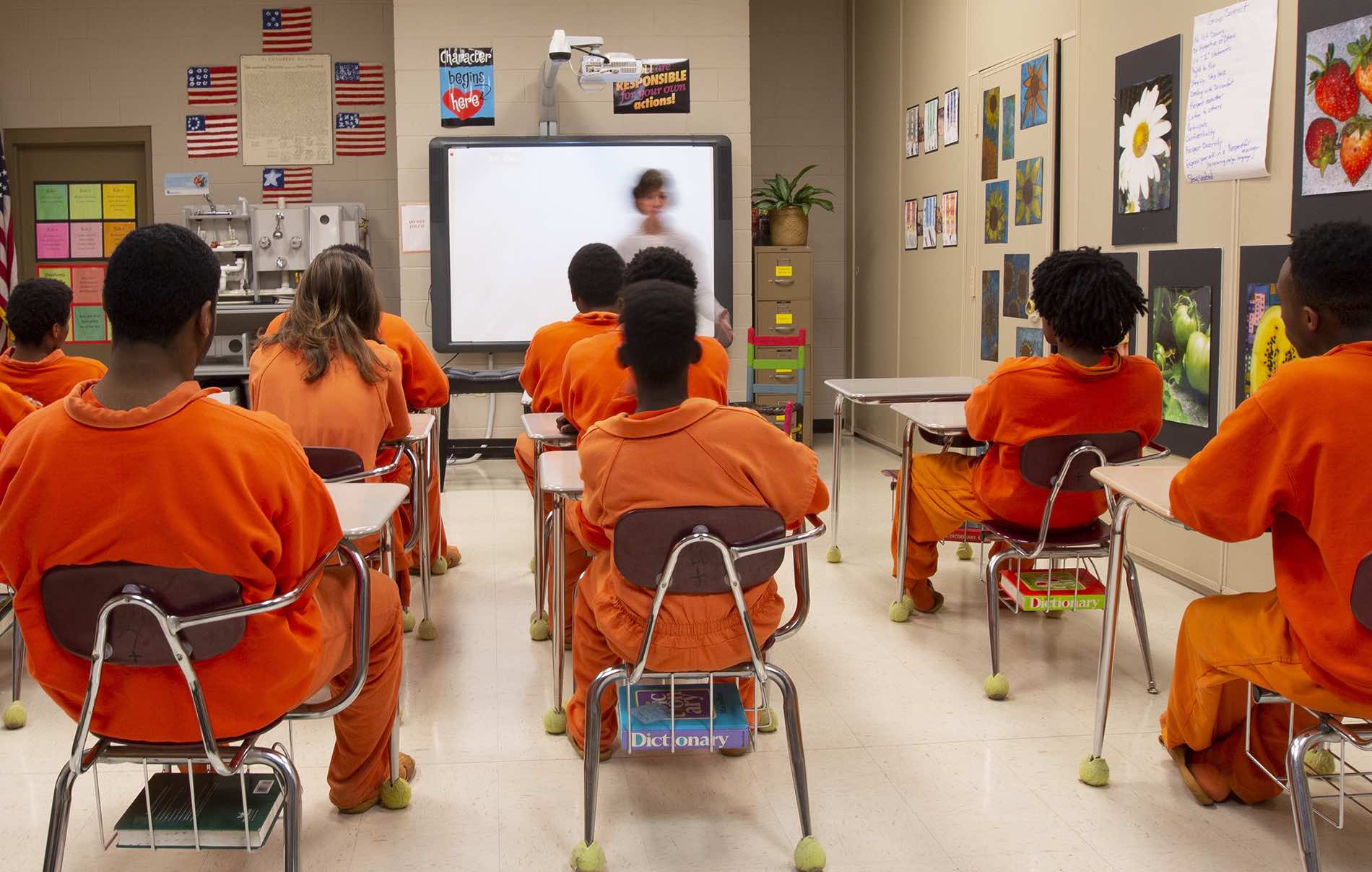Jordan Rose playing drums on tour with Theo Katzman. Photo by Dara Munnis.
Jordan Rose, a Berklee alum and an accomplished drummer, is currently traveling the world on Maggie Rogers’ highly-anticipated Don’t Forget Me tour. The tour’s name is fitting for Jordan, who remembers everyone. One of his biggest strengths is staying in touch with the people he’s met along the way in his music career, including the Academic Advising team at Berklee Online. After graduating from Berklee College of Music in 2012 with his degree in Drum Set Performance, Jordan was an Advisor for a brief six-month period.
“I enjoyed getting to talk on the phone with people from all over who were trying to further their music education, and learning what their goals were,” says Jordan. “I was young and didn’t have that much experience outside of school, so it was interesting to talk to people who already had full-on careers. It opened my eyes and helped me see that there’s so many different journeys that people are on, and it inspired me to figure out what my journey might look like.”
That journey started when he was invited to join legendary blues musician Joe Louis Walker on his international tour in 2013, leaving his advising role behind, but not his friendships with the team. This set into motion a whole career collaborating with artists such as Jacob Collier, Theo Katzman, Laufey, Charlie Puth, Ruel, SZA, Rufus Wainwright, Cory Wong, and many more.
Discovering the Drums
Born and raised in Houston, Texas, Jordan is the youngest of three. He first picked up the drums at age 11, encouraged by his middle brother, Mike. By sixth grade, Jordan had joined his school jazz band and started working with a private instructor. Recognizing his talent, his oldest brother, Greg, a singer and songwriter, invited Jordan to join his band, Skyward. They played ’90s alternative rock and punk, covering bands like Creed, MxPx, Slick Shoes, and Jimmy Eat World.
“As soon as my eye got on the drums, there was a spark and I never looked back,” says Jordan. “I became obsessed and here I am. I’m 37, so 20-something years later, I still feel the same excitement I had when I was 11. I just love it.”
Finding His Calling
Before attending Berklee in Boston at the age of 23, Jordan experienced a life event that tested and cemented his perseverance in pursuing music. At the age of 20, he lost all hearing in his right ear overnight due to a benign tumor. In the span of two years, he had four surgeries on his ear and he says there were times when he didn’t know if he’d ever get his hearing back.
“It was an emotional roller coaster, thinking maybe I should change careers,” he says. “But ultimately, going through that hardship really did the opposite in a positive way, where it really reinforced that music is what I was supposed to do. I felt it was my calling.”
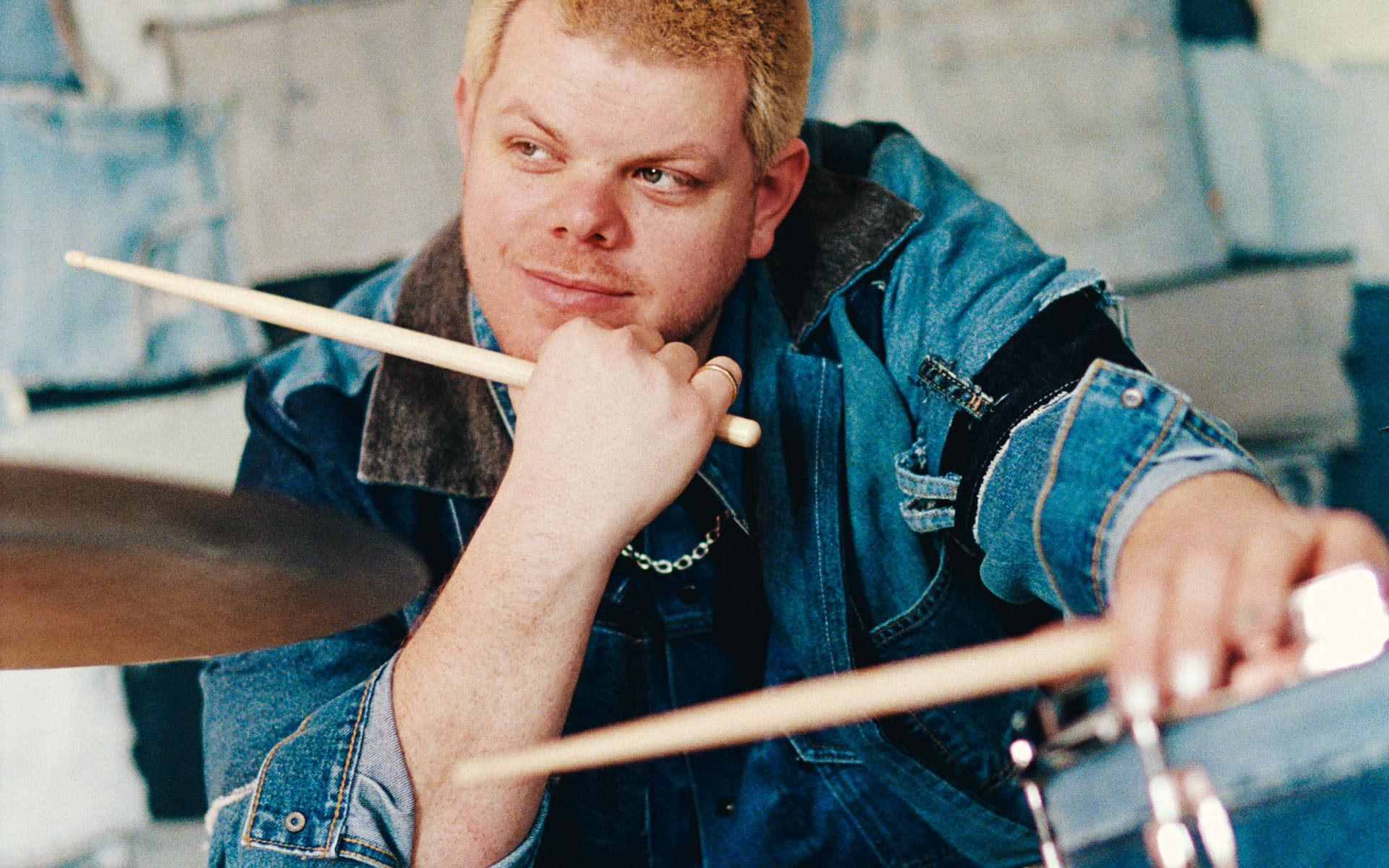
One of the most challenging twists on that emotional roller coaster occurred after undergoing his third surgery, which was supposed to be his last. A month after what he thought was a successful procedure Jordan lost his hearing again. That night he had a gig playing Dixieland jazz, music that traditionally evokes carefree happiness. Jordan says he felt the exact opposite.
“Here I am, super depressed. I couldn’t even smile at anyone. I was just feeling so down and ‘woe is me,’ but I struggled through the gig and did my best, but just felt very dark inside,” he says. “After the gig, I was packing up and this elderly couple came up to me and the man was saying, ‘Hey, thanks for the music. We loved it.’ And then the woman started talking, but her voice didn’t sound. So I was listening a little closer, and then she proceeded to tell me that she was completely deaf, and she was like, ‘I couldn’t hear your music, but I could feel it in my heart.’”
Jordan says he thanked the couple and went out to his car and started to cry.
“What are the chances on the day that I lose my hearing again?” says Jordan. “So whenever times get tough, and if I think, ‘What am I doing with my life and my career?’ I think of those people, and it just gives me motivation to get back up and keep going. Even though I don’t have all of my hearing, I learned that music is more than just our ears. It goes to our heart and our soul.”
Laufey
With some of his hearing restored and a renewed determination to pursue a career in music, Jordan moved to Boston in 2010 to attend Berklee at the age of 23. He quickly made friends, many of whom he remains in touch with to this day, including Spencer Stewart, whose career as a music producer has recently taken off.
“I remember the day I met Spencer on campus,” says Jordan. “He was carrying an upright bass, and he was walking into the cafeteria and I just said, ‘Hey, man,’ and we just started a conversation. We had lunch together that day, and he was so interesting and so passionate about music, and we hit it off and became friends.”
After Berklee, Jordan and Spencer played in several bands together in New York and toured with musician Caleb Hawley. When Spencer shifted from performing to producing music, he began working with another Berklee alum, Laufey. While recording her album Bewitched, Spencer asked Jordan to play on the album’s opening track, “Dreamer.” Bewitched went on to win a Grammy for Best Traditional Pop Vocal Album.
“Laufey has just been crushing it,” says Jordan. “She won a Grammy, and it’s awesome. Really excited to be a part of it.”
Jacob Collier
Last year, singer Jacob Collier DMed Jordan to play drums on a recording session at BerkleeNYC’s Power Station studio. After a full day of recording, it was past midnight, but Jacob had one more song he wanted to try. That song turned out to be the single, “Little Blue,” which features Brandi Carlile.
“Jacob was like, ‘Hey, Just come into the control room, listen to it, and then go out there and we’ll see what happens.’ And it was ‘Little Blue.’ So I went in and listened, tried to just get the form of the song and then went out to the drums and we just did a couple of takes.”
Interestingly, “Little Blue” was the only track they recorded that day that ended up on his 2024 album Djesse Vol. 4.

“He was laser-focused the entire time,” says Jordan. “We would do a take of a song, and then he’d come out and he would have a list of notes, and he’d just be like, ‘Okay, try this on the prechorus. And he would beatbox ideas, and he was moving so quick. It was amazing to see how his brain works and how the details play into the full symphony of his music. On top of that, he’s also just incredibly friendly. He made me feel like an old friend immediately, which it’s always nice when people are incredibly talented, but also incredibly great people.”
Maggie Rogers
Because of this recording session, Jordan got connected with Bryn Bliska, who is Maggie Rogers’ keyboard player and co-music director. She was in Collier’s touring band at the time. Jordan remembers getting the text from her about auditioning for Maggie’s Don’t Forget Me tour, and almost turned it down if it weren’t for his wife, Jules.
“When I got that text, I did kind of have a busy year booked out that I was feeling really excited about,” says Jordan. “So I almost immediately said, ‘Thank you so much, but I don’t think this makes sense.’ My wife, she was next to me in bed, half-asleep, and I just told her, ‘Hey, I was just asked if I was interested in the Maggie Rogers tour. I’m kind of thinking I’ll say no.’ She was like, ‘Wait, just learn more about it before you say no.’”
He says he’s glad Jules encouraged him to reconsider because he got the gig, and his conflicts ended up moving anyway.
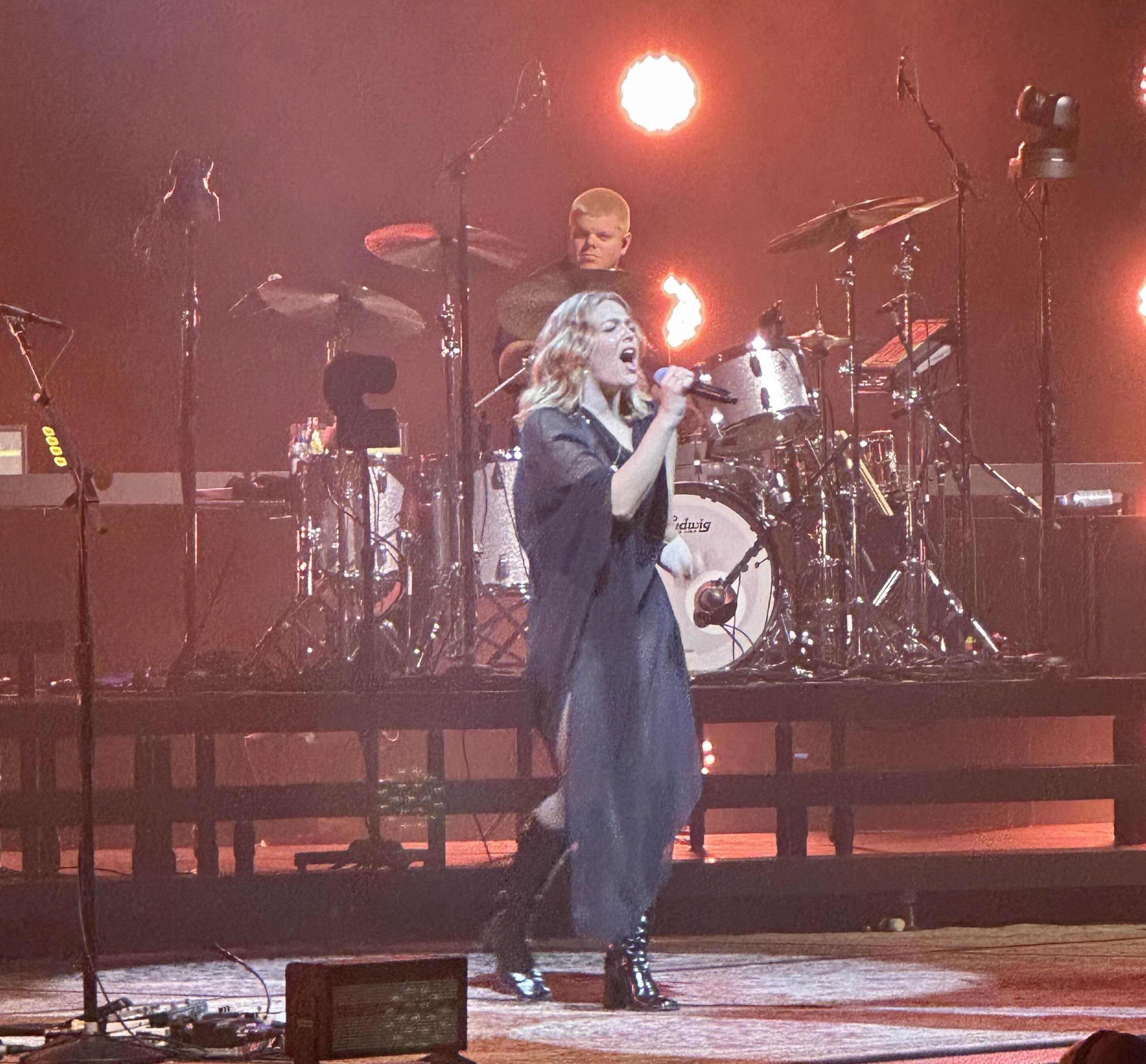
“At the beginning of this year, I did not see myself being on tour with Maggie Rogers, but it all worked out and I’m just loving it. Everyone is super kind. Everyone is super professional and good at what they do. Maggie’s amazing. She has so much on her plate, but she handles it with grace and with a smile on her face. And she’s so talented. It’s really inspiring to be around her and just around everybody in this group.”
Advice for Musicians
Jordan’s advice for getting more gigs is simple: put the music first.
“I always try to remember that it’s not what I’m playing, but it’s how I’m playing it,” says Jordan. “Even if it’s technically simple, I try to put my heart and soul into it and play it. I’ve spent hours at Berklee in the practice room to be able to do a lot of technical things, but I think playing what’s appropriate is putting the music first.”
Additionally, it never hurts to be kind.
“I also think just being a nice person helps, and it’s a work in progress,” he says. “I’m trying to always work on myself and just figure out how I can help others to feel good and feel supported and whatever gigs I’m doing.”




